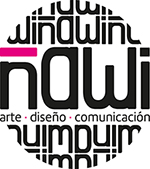The Designer as an Adaptive Expert. Training for the Definition of Problems
DOI:
https://doi.org/10.24215/24691488e021Keywords:
Project, problem, expertise, culture, contextAbstract
Design is a project discipline aimed to specify the characteristics of systems of practical use and systems of visual messages, optimizing its relationship with the human being. The conventions usually referred to as the culture of a human group establish a context for the deployment of any design decision-making process, whose starting point is the identification and definition of a problem to solve. Based on a university pedagogical experience, the way to train future design professionals is analyzed so that they can achieve the necessary autonomy to generate novel solutions to problems with little or no background; orienting their training towards overcoming the routine application of pre-existing conventional solutions.Downloads
References
Berger, P. y Luckmann, T. (1993). La construcción social de la realidad. Buenos Aires, Argentina: Amorrortu.
Bransford, J. y Stain, B. (1993). Solución IDEAL de problemas. Guía para mejor pensar, aprender y crear. Barcelona, España: Labor.
Einstein, A. e Infeld, L. [1938] (1986). La Física. Aventura del pensamiento. El desarrollo de las ideas desde los primeros conceptos hasta la relatividad y los cuantos. Buenos Aires, Argentina: Losada.
Giddens, A. (1996). Sociología. Madrid, España: Alianza.
Hatano, G. e Inagaki, H. (1984). Two courses of expertise. Research and Clinical Center for Child Development Annual Report, (6), 27-36. Recuperado de http://hdl.handle.net/2115/25206
Humphrey, J. y Jones, J. C. (1978). Métodos de diseño. Barcelona, España: Gustavo Gili.
McEwen, A. y Cassimally, H. (2014). Designing the Internet of Things. Londres, Inglaterra: John Wiley and Sons.
Marincoff, G. (2017). Proyectación y contexto sociocultural. El desarrollo de competencias asociadas. Metal, (3), 58-65. Recuperado de http://papelcosido.fba.unlp.edu.ar/ojs/index.php/metal/article/view/460/746
Norman, D. (1990). La psicología de los objetos cotidianos. Madrid, España: Nerea.
Downloads
Published
How to Cite
Issue
Section
License
The acceptance of the manuscript by the magazine means the non-exclusive cession of the property rights of the authors in favour of the editor, who allows the reuse, after publication (post print), under a license Attribution-NonCommercial-NoDerivatives 4.0 International. According to these terms, the material can be copied and redistributed by any means or in any format as long as a) the author and original source of the publication are quoted (magazine and URL of the work), access to the license is provided and whether changes have been made is mentioned; and b) the material is not used for commercial purposes.
The cession of non-exclusive rights means that after the publication (post print) in Arte e Investigación the authors can publish their work in any language, means and format; in such cases it must be mentioned that the material was originally published in this magazine. Such cession also means the authorization of the authors for the work to be collected by SEDICI, the institutional archive of the National University of La Plata, and to be spread in the databases that the editorial team considers appropriate to increase the visibility of the publication and its authors.
Moreover, the magazine encourages the authors to deposit their productions in other institutional and thematic archives under the principle that offering the society the scientific and academic production without any restrictions contributes to a greater exchange of the global knowledge.


































